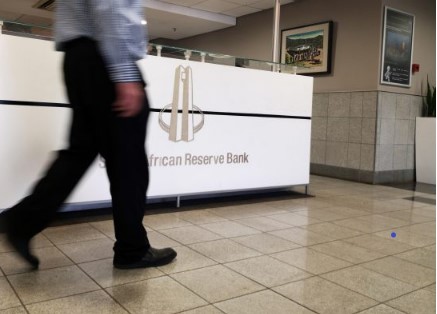The South African Reserve Bank (SARB) may no longer be a visible part of the process to cease residency in South Africa. However, when it comes to moving money out of the country during or after emigration, the Reserve Bank is still very much involved. This is especially true for amounts above R10 million.
Currently, we’re not only seeing people leave the country for better prospects abroad but also a rise in those moving funds over R10 million offshore.
Such high amounts require SARB approval, a long and complex process that needs a solid roadmap to succeed and the support of a strong legal function.
Why is SARB approval required?
South Africans must pay income tax on their worldwide earnings and capital gains tax (CGT) on the disposal of both their local and foreign assets, even after they leave the country.
To be released from their local tax obligations, they must formally cease to be resident taxpayers by providing SARS with objective evidence of their intention to permanently reside outside South Africa.
Once SARS recognises them as non-resident taxpayers and issues them with a tax compliance status (TCS) PIN in respect of ’emigration’, their authorised dealer may allow them to transfer up to R10 million out of the country – provided, of course, they are fully tax compliant and have a relevant TCS PIN.
If they wish to transfer more than R10 million offshore, they will be subject to an additional verification process by Sars and, subsequently, must seek approval from SARB’s Financial Surveillance Department.
Furthermore, SARB through its Financial Surveillance Department is mandated with detecting and averting any money laundering tendencies.
Application process
There’s a misconception that, since the change to the emigration process, SARB approval is no longer a factor when emigrating.
However, when it comes to substantial funds leaving the country, SARB will always be involved.
Dealing with SARB every day and having witnessed the spike in requests for transfers above R10 million, Ndlovu advises that the requirements in these cases are much stricter and more complex. Therefore, the process should not be approached without professional assistance.
The first step taxpayers usually take is to engage an authorised dealer, typically their own bank, who can facilitate the transfer after being furnished with requested documentation and a TCS PIN.
Even at this initial stage, authorised dealers are not always clear about which documents they need so our clients usually approach us first, as we already know from experience what is required.
This is followed by a verification process by SARS for foreign investment allowance (FIA) approval, over and above the normal tests for tax compliance. So, you’ve been through an exhausting process to cease tax residency and now you are faced with a demanding investigation into the sources and purposes of these funds. Once again, supporting declarations and documents will be required by the tax authority.
Finally, the taxpayer can approach SARB’s Financial Surveillance Department through their authorised dealer, with their TCS PIN in hand, to seek approval for their transfer. Here they will face another round of questions and requirements.
They then return to their authorised dealer, who still has to follow its own processes before releasing the funds.
It must be mentioned that SARB now requires a relevant TCS PIN for every transfer offshore, with the relevant funds to be transferred cleared by SARS.
Legal component
Often, there is a lot of back and forth between the various functions due to factors like missing documents or unsatisfactory explanations. Critical to faster approval is using a provider with a strong legal component, because the right legal language can accelerate the process. Without this, applicants may get bogged down in technical details they are not equipped to handle.
Legal support during the three phases of the process is crucial to success, along with a well-developed roadmap for the applicant.
When assisting South Africans who have ceased tax residency, we tend to approach SARS first for FIA approval and then SARB for exchange approval so that, when we finally engage the authorised dealer to transfer the funds, we already have everything they need in our possession.
Each stakeholder looks for very particular wording and language that is legally sound and they will be encouraged by professionally compiled information. When they pick up that a legal mind is involved, they are more confident in the application because it is orderly and methodical, making verification easier.
Legal language and wording become especially important when drafting various declarations and motivations that support the applicant’s case. If the explanations are too subjective, don’t make sense, or are noticeably written by a layperson, parties are more likely to reject the application to avoid risk.
Collaborative effort
A good mix of procedural know-how and legal expertise is the make-or-break factor when applying to transfer funds above R10 million offshore.
You need to be able to deal with SARB, SARS and the authorised dealer on a technical level, individually and collectively.
Article by Lovemore Ndlovu is head of SARB engagement and expatriate compliance at Financial Emigration, a division of Tax Consulting South Africa; and Colleen Kaufmann is tax attorney at Tax Consulting South Africa.

